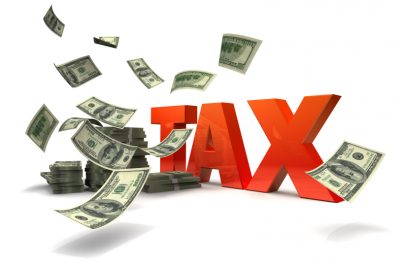“How should I find resources to fuel the growth of the sustainable economy and preserve the sovereignty of the nation?” This should have been my central theme if I was the Finance Minister.

While there are innovative ways to find the resources to fuel the growth but it is fundamental that today’s economic environment requires government to contribute significantly as private sector won’t be party if there is no stake of government to get going any project. Private sector which aims to be profit oriented in short term cannot afford to pick long term projects where there would be significant investment required either for public good or changing fundamental rules of the business.
We all know that government generates its revenue through the direct and indirect taxes and while the debate on GST is on and hopefully a solution will emerge, I would like to focus on leakages in the direct and indirect taxes.

Today only 3% of Indian population pays taxes and to everyone’s surprise none of the top 10 richest Indian (
http://www.forbes.com/india-billionaires/list/) is in the list of top 15 tax payers on the FY 2015-16 for first 10 months (
http://indianexpress.com/article/india/india-news-india/taparia-family-some-actors-lawyers-among-top-taxpayers/). I am sure there would be reasons for this but larger point is that this is tip of the iceberg and this trend continues. In India largely only those who cannot escape to pay the taxes pay and even then various instruments come in to reduce the taxes and this is the problem and here only is solution!
The solution is correcting the fundamental of the income tax rules. While in the case of corporate income tax, the tax is calculated after all the expenses have been reduced from the revenue but in the cases of Individual Income tax it is largely on the earning itself. So it is not tax on income but revenue!!!
Historically there would have been reason to do that due to lack of resources to manage this better but today with improvement of financial technology it is absolutely crazy to continue the past practice. Let me explain what my solution is:
If you earn 10 Lakh Salary or other income and it would get deduct approximately 3 Lakh (@30%) as tax deducted at source. Instead of this if calculation was similar to corporate income tax then it would be as following:
Salary = 10 Lakh
Expense= 7 Lakh (Groceries, School Fee, Rent/EMI, Fuel, Shopping, Entertainment, Holidays, etc.)
Net Income: 3 Lakh
Income tax= 0.9 Lakh (@30%)
Now imagine as a citizen you have contributed approximately 2.1 Lakh less than the current method but you have brought that money in the market by spending it. This amounts to say that you have contributed towards economy. But here lies another worry of government!
Most of the transactions in India happen outside the formal financial systems and this leads to evasion of Sales Tax, Service Tax, Value Added Tax and Customs / Excise Duty. This can be simplified by making sure that expense claimed by individual should only be considered if this transaction is on formal financial system (Credit Cards, Debit Cards, Cheque, Online payments, etc.).
So what is the gain?
Present scenario:
Approximate Direct Tax Collected from the individual: 3 Lakh
Approximate Indirect Tax Collected through the Retailers or service providers or manufacturers: 0 Lakh as this transaction is not happening on formal financial system
Proposed situation:
Approximate Tax Collected from the individual: 0.9 Lakh
Approximate Indirect Tax Collected through the retailers or service providers or manufactures: 7Lakh*30% = 2.1 Lakh as now all the transactions are happening on formal financial system. This 30% could be more or less depending upon the product category and geography of the producer and consumer.
If we see that net impact to the government it is same but by bringing this small change in the income tax calculation it has increased the disposable income of the tax payer significantly and by allowing this to get recognized only through the formal financial system it has insured that leakage are plugged. This has huge implications as:
- People have lesser incentives to do transactions outside the formal financial system
- Massive unaccounted economy will be brought into formal structure
Next step government can do is just have one tax rate @30% or 25% or 20% as it does not matter how much you earn, what matters is how much is your net income. So a person with 30 Lakh salary and 27 Lakh expense would pay same income tax as a person with 10 Lakh salary and 7 Lakh expense as their net income is 3 Lakh only but the person with 30 Lakh Salary would have contributed more to drive the economy as 27 Lakh has been pumped back in the formal system.
Can’t we have a simple, transparent and logical income tax rule?
-------
Prakash is a Sales & Marketing Professional with engineering experience. He is the Director of EY in India. In past, he has held positions of President – Sales & Marketing: Delton, Asia Pacific Marketing Director in US MNC: Belden & AVP – Pre-Sales & Marketing: GE. Prakash is an alumnus of IIM Bangalore and IIT Delhi.




